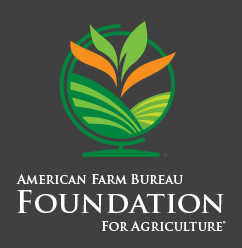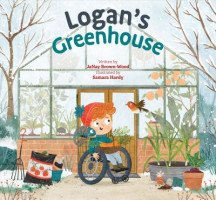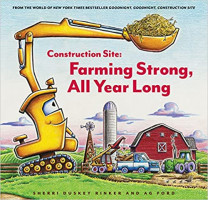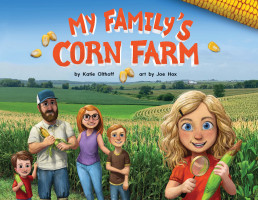White-Reinhardt Grants Application Process
projects
About
The White-Reinhardt Fund for Education is a special funding opportunity from the American Farm Bureau Foundation for Agriculture® in cooperation with the American Farm Bureau® Women’s Leadership Committee. It was established to honor two former chairs of that committee (Berta White and Linda Reinhardt, leaders in the national effort to improve agricultural literacy) by enlarging agricultural literacy efforts across the United States. The project grant is one of two components of the fund.
Purpose
Grants are offered to state and county Farm Bureaus in amounts up to $1,000 for education programs for grades K-12 to initiate new programs or expand existing programs to additional grade levels or new subject areas. The purpose of the fund is to support projects that will expand agricultural literacy.
Grant Application Timeline
There will be one application cycle per year that will occur during the summer.
Next Cycle:
-
Applications will be due June 16.
-
AFBFA will send applications to State Farm Bureau’s for approval on June 20.
-
State Farm Bureaus have until June 28 to approve grants.
-
Recipients will be notified on or around July 3.
-
Initial funding will be issued the beginning of August.
-
Reports will be due by June 28, 2024 and final payments processed.
Application Guidelines:
-
Grant applications must be completed and submitted via online submission. The Foundation will send applications to the state Farm Bureau administrator or agricultural literacy coordinator for approval.
-
Applications to the American Farm Bureau Foundation for Agriculture must be approved by their respective State Farm Bureau by June 28 for this year’s program.
-
Those projects selected for grants will receive one-half of the grant at the beginning of the project and the balance upon completion of the project and submission of a final written report to the American Farm Bureau Foundation for Agriculture.
-
Both county Farm Bureaus and state Farm Bureaus in the same state are eligible to apply. Each county Farm Bureau may submit only one application for a county project. Each state Farm Bureau may submit only one application for a statewide project in addition to any county projects (one per county).
-
By submitting county applications, the state is verifying that the request originates with a county Farm Bureau.
-
Funding is not available for mileage, field trips, wages and benefits, safety programs or one-time consumable products such as copying, paper, seeds or meals. The intent is to build capacity by funding items that can be used repeatedly.
-
Grant payments can be made only to a state or county Farm Bureau. Payments cannot be made to individuals or to other organizations.
Selection Criteria:
All applications must be for agricultural literacy programs. This program is not to address farm safety education. Due to the large number of applications, all applications will be pre-screened for compliance with grant proposal guidelines. Any grant application not meeting guidelines will be eliminated from the judging process prior to examination by judges.
The following areas will disqualify:
-
Applicant failing to follow directions
-
Applications submitted after the deadline
-
Consumables in budget
-
Applications not meeting basic qualifications as an agricultural literacy program
-
Applications not approved by state Farm Bureaus
All applications meeting guidelines will be evaluated by a panel of judges. Each evaluator will be asked to score the applications according to the following criteria:
-
The project enhances learner engagement in today’s food, fiber and fuel system. 30 points
-
This project will creatively engage students in a manner that encourages them to learn more about agriculture. 20 points
-
The project narrative is complete and includes well thought out: Plan, Goals, Timeline and Budget 20 points
-
The project expands on current ag literacy efforts (additional grades, audiences, new subjects, etc.) 15 points
-
The project indicates specifically how the project aligns with The Pillars of Agricultural Literacy. 15 points








